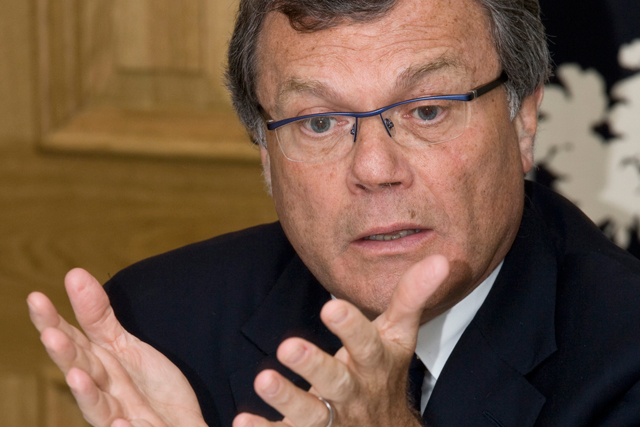
The European Commission is set to publish its decision on Wednesday (22 December), revealing whether they have any concerns that the merger of the multimedia giant would prove anti-competitive.
There is a growing consensus that the EC is likely to clear the deal, although many commentators expect some "outstanding issues" might need to be resolved before a full green light.
Separately, Sky is also awaiting the result of Ofcom's investigation into whether the deal could harm media plurality in the UK.
The regulator has until 31 December to deliver its findings to the business secretary Vince Cable, who referred the takeover to the regulator on 4 November.
Talking about the move, Sorrell told Media Week: "Probably predictable that Vince Cable would refer. If the case is a good one, it will pass.
"Probably also predictable it will pass the review. Pay for content, industry consolidation and state subsidy are the three trends we see in the media industry."
The WPP leader’s comments come as Murdoch’s newspaper operation News International experiments with paywalls around its content online. The Times, The Sunday Times and News of the World are all accessible to subscribers-only now, with The Sun brand to follow in the New Year.
Stevie Spring, group chief executive of Future, understands Murdoch’s motives. She said: "If I were Murdoch that's exactly what I'd be doing."
"The opportunity for News International to go behind a paywall only makes sense if it can be bundled up with Sky. You can't charge properly for news online as it's ubiquitous, there's too much availability.
"Murdoch's right to be going for that strategically. It's a different issue whether it's right for the media landscape as a whole."
Cable, a senior Liberal Democrat, said he will not be "governed by instinct" when it comes to making a ruling. He said: "I don’t see this as being political and I certainly don’t allow my own prejudices and instincts to get in the way."
The takeover has been opposed by figures including Lord Puttnam, the deputy chairman of Channel 4, who, in November, warned it posed a "genuine threat to plural, consensus-based democracy".
Speaking in a debate in the House of Lords, Puttnam worried the UK was on a "slippery slope that could find us falling further and further under the influence of a US-based owner with a highly questionable interest in the benefits of a diverse and flourishing plural media in the UK".
The former BBC director-general Lord Birt also called for the government and regulators to "resist News Corporation's desire" out of concern that the "opportunities that cross-subsidy, cross- promotion and the opportunities of bundling could easily see News Corporation's dominance in newspapers increase".
Following News Corp's bid a media coalition consisting of Telegraph Media Group, Guardian Media Group, Trinity Mirror, Daily Mail & General Trust, BT, the BBC and Channel 4, wrote a joint letter to Cable, warning the takeover "could have serious and far-reaching consequences for media plurality".
Lord Fowler, the former Conservative cabinet minister, applauded the business secretary's referral of the takeover to Ofcom but questioned the motives of those rivals to Sky which called for the investigation.
Fowler said: "News Corporation is opposed by a coalition of newspapers and the BBC.
"I suspect that some of the newspapers would dearly like to have the market position of Mr Murdoch while the BBC is not perhaps in the strongest position to talk about market dominance given its political influence and the enormously strong position of radio news."
Recent speculation has hinted that News Corp would be willing to sell The Times and The Sunday Times to secure Government approval for the deal.
James Murdoch is reported to be particularly annoyed that the Barclay brothers, the Telegraph owners, had come out against News Corp. Murdoch had thought they would be sympathetic to his business philosophy.
Back in October his father Rupert used a speech in London to obliquely criticise those who he believes are bent on holding back the progress of his company.
Murdoch, delivering the inaugural Margaret Thatcher Lecture at the Institute of Policy Studies, took the former Conservative prime minister's thinking on free markets and education as the theme of his speech.
He praised competition, hitting out at the "traditional elites" who he said were likely to try to block the rise of "the iconoclastic and unconventional".
He said: "When the upstart is too successful, somehow the old interests surface and restrictions on growth are proposed or imposed.
News Corp made its first move for Sky in June when it pitched an offer at 700p a share or £7.8bn in total. The independent directors of Sky rejected the offer as too low, but said they would consider a higher offer should the deal get regulatory approval.


.jpg)


.jpg)